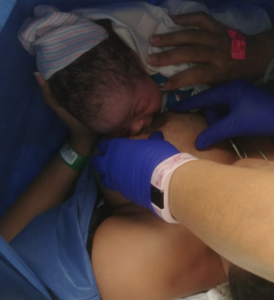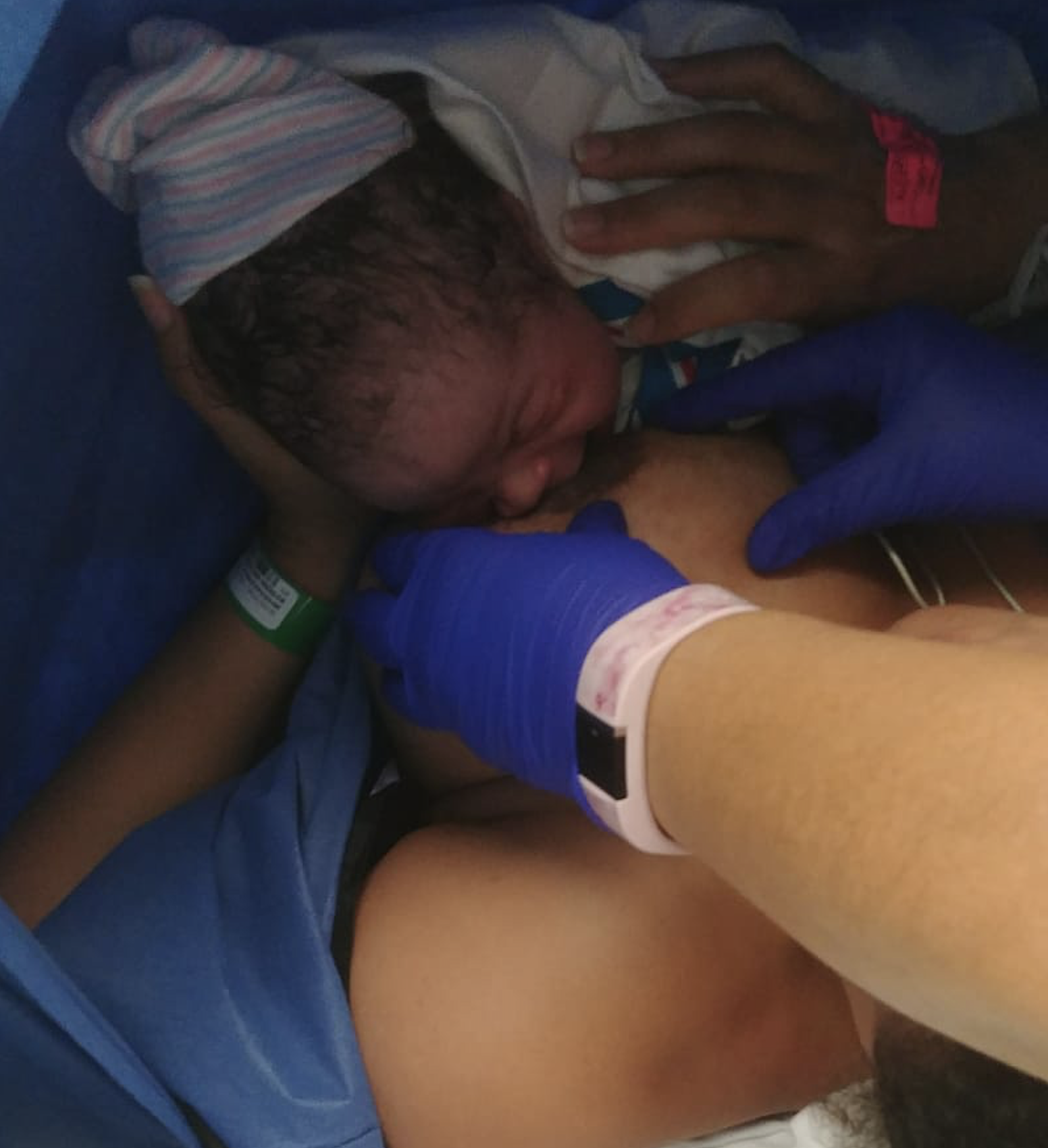An interview about breastfeeding during emergency situations: Angeliz Rivera- a Registered Nurse.
Is safe child feeding during natural emergencies, such as a hurricane or the current COVID-19 pandemic?
There are many questions regarding child feeding during natural emergencies, such as a hurricane or the current COVID-19 pandemic. Is it safe to breastfeed? What happens when moms are separated from their children? Can changes in a breastfeeding mother’s diet during a natural emergency affect the nutritional content of their breast milk?
To help us answer some of these questions, we spoke with Angeliz Rivera– a registered nurse and breastfeeding mother of a 10-month-old baby. She shared her experience working as a nurse when Hurricane Maria struck Puerto Rico on September 20, 2017, leading the island into a desperate humanitarian crisis. Check out our interview below!
How was your experience helping mothers and infants during the hurricane in Puerto Rico?
The day after Hurricane Maria hit (just days after hurricane Irma), despite the disaster it caused, I managed to get to the hospital. As I had expected, there was very few personnel. We were given12-hour shifts and, for three days, I couldn’t leave the hospital. The structures of most of the hospitals in

the Puerto Rico Medical Center are old and in poor condition. Many areas within the hospital where I work were flooded or had been damaged by the high winds. However, it was the only hospital in the area that could serve uninterruptedly during the atmospheric event. Our OB areas experienced an abrupt increase in patients, as most hospitals were not fit for deliveries and private offices were closed for days or even weeks after. Part of the NICU at the University Hospital was destroyed and patients had to be moved amidst the storm to other areas of the hospital.
I was assigned to the Nursery (well baby) with a licensed practical nurse and 17 infants, all of whom had been separated from their mothers for “safety” during the hurricane. Most of the babies in the nursery were formula-fed and some few mothers came by to breastfeed once in a while. None of the mothers, that I remember, were breastfeeding exclusively. Many mothers expressed concern because they had not been able to communicate with their families. They didn’t know if they were alive, who would come to pick them up, or how they were going to get home. I think that being in that state of extreme anxiety and anguish, and thinking about how to deal with a newborn in the midst of that chaos (which most of us had never experienced in that way) was what prompted most of the mothers to request the administration of formula. We also had nursing mothers who stopped breastfeeding after the hurricane because they
were wrongly informed that due to the change in their diets from mostly fresh to canned food, their milk would be of a lower quality. For this, the Department of Health had to prepare public campaigns to promote breastfeeding as the best and safest source of infant nutrition during emergencies.
It was very difficult to correct or avoid this type of misinformation since the clinic’s interventions increased from approximately 40 patients a day to over 70 patients a day, including prenatal and postpartum visits, all with a decreased number of nurses on staff. Even the Center’s Pregnancy program, which had been very successful in increasing breastfeeding rates and decreasing unnecessary childbirth interventions, was canceled due to a lack of personnel and funds. Last year, funds were identified for a research project that studied the effect of group prenatal care in maternal stress reduction after hurricane Maria. Group care was up and running again providing education on breastfeeding and other pregnancy, childbirth, and parenting-related themes, but was again canceled with the current COVID-19 pandemic.
What do you think are the biggest challenges for mothers and their infants during a natural emergency, such as a hurricane or a global pandemic like COVID-19, in terms of breastfeeding?
I think the biggest challenge for the breastfeeding dyad during an emergency is the limited access to reliable information and competent assistance. After the hurricane, the problem was the overcrowding of patients in the hospital and the lack of personnel able to adequately educate and provide technical assistance in breastfeeding. Now, with the COVID-19 pandemic, patients are discharged as quickly as possible, without education or lactation assistance. After being discharged, mothers who decide to breastfeed face the fact that the services previously offered in relation to breastfeeding are no longer available or are only offered virtually. Additionally, the separation from their babies poses a great challenge for breastfeeding mothers. Protocols such as these, that undermine breastfeeding in the hospital, are strengthened with each catastrophic event. Separation of mother and infant from birth only deprives them both of their right to receive better health, better care, better relationships, better nutrition, and all that breastfeeding represents for the dyad.
Do you think breastfeeding can have a positive impact on the environment?
I strongly believe that breastfeeding is ecological in every sense of the word. I can’t think of a better way to defend and protect the environment and its inhabitants than providing your baby perfectly fit nutrition and live food that produces no waste.
We hope you enjoyed and learned as much from our interview with Angeliz as we did! To learn more about breastfeeding and breastfeeding during COVID-19, click here.
About Angeliz Rivera
Angeliz Rivera is a registered nurse and breastfeeding mother of a 10-month-old baby. She cares for patients in the prenatal clinic at the University District Hospital (UDH) in Puerto Rico’s Medical Center.


